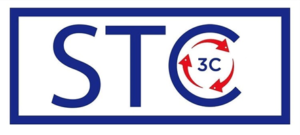Year 12 CAS – Ocean 3C

CAS stands for Creativity, Action, and Service, and it is one of three essential elements that every student must complete to receive the IB Diploma. While not formally assessed, CAS provides opportunities for students to enhance their personal and interpersonal development through hands-on learning.
One of the components of CAS is a ‘CAS Project’, a collaborative series of student-initiated CAS experiences over several months engaging students in one or more CAS strands (creativity, activity, and service). Following the five CAS stages of Investigation, Preparation, Demonstration, Action, and Reflection, students can explore their passions whilst challenging themselves to initiate purposeful action around defined goals. The following months will bring a series of interviews where the STC Media Team interviews different students around school to highlight their CAS projects and initiatives.
This week, Gabriel Barlier speaks to the STC Media Team about his CAS project Ocean3C, of which he is the leader. After learning about the consequences of climate change on increasingly fragile ocean ecosystems, Gabriel founded STC Ocean3C with a group of like-minded individuals – Arden Mak, Jayden Chu, Yui Kiu Cheng, and Man Hoi Chu – to improve ocean literacy in the STC community through advocacy and service activities.
Can you introduce Ocean 3C? What intentions does your CAS project have?
STC Ocean 3C is a CAS project collaborating with Oceans3C to improve ocean literacy throughout the STC school community. While we want to raise awareness about ocean conservation in general, this year, we focused mainly on the topic of carbon sequestration, as it is an issue we often overlook despite its ramifications on ocean ecosystems.
What impact/outcome do you hope your CAS project will have on the school community?
We hope to promote ocean literacy and raise awareness on carbon sequestration through our CAS project. Overall, we want students to leave this academic year with a clearer understanding of the importance of ocean ecosystems, thus setting the foundations for a generation of ocean-minded individuals in the STC community and beyond.
Any changes due to COVID-19? How have you adapted?
Like every other CAS project, the pandemic has brought many issues and challenges; many things we previously planned are now unfeasible, so we have to find new, creative ways to spread our message. We are currently planning an after-school club to teach members about carbon sequestration and, with their help, design a series of short and informative video clips to distribute to STC students and staff.
We noticed that STC Ocean3C is an STC organisation created in collaboration with Ocean3C. What does Ocean3C do? Why is the work they do important?
Ocean3C is an innovative non-profit organisation based in Hong Kong that educates people on ocean literacy and sustainability. Collaboration is the main focus of Ocean3C, and it aims to improve ocean literacy worldwide by educating the youth. Children are the future of the world, and by educating and changing their beliefs, we can shape the future of humankind.
Why is protecting the ocean important?
The oceans are vital to our survival. Contrary to popular belief, it is not the forests and jungles that produce most of the earth’s oxygen but rather the phytoplankton in our oceans. Indeed, more than half of the oxygen we need to survive comes from millions of these tiny organisms living in the oceans. Moreover, over three billion people worldwide depend on the oceans for their livelihoods, whether it be fishing, tourism or transportation, to name a few. From this, we can see why the oceans are so important – to do nothing to protect them would be akin to sitting idly by, watching the lungs of our planet slowly degrade.
What can we do to help the sea and make a difference?
While there is no shortage of people wanting to do their part, many are intimidated because they don’t know what to do. However, small actions such as buying sustainable seafood, reducing plastic waste, or even educating yourself on the significance of ocean ecosystems will go a long way. Any effort, no matter how small, helps.
Do you think the problems with the ocean today lie in the consumers’ awareness, attitudes and behaviours?
The rampant consumerism that permeates society, particularly in developed countries, is undoubtedly a large part of the problem. Apart from widening income inequality worldwide, unchecked consumerism has, and will continue to have, a devastating effect on our oceans. With demand for goods increasing uncontrollably in recent years, the resources needed to produce these goods will continue to skyrocket, with many nearing depletion at an alarming rate.
Sadly, thousands of fish species have already become endangered due to commercial fishing. Likewise, consumerism and its consequent costs have led to a rise in waste products that pollutes our oceans and hurt marine species; a lack of sustainable ways to dispose of waste further exacerbates the problem. Still, many people are either unaware or willfully ignorant about this situation, which, without a doubt, demonstrates the importance of education. As mentioned previously, children are the future of the earth, and it is by educating them we can shape a better future for our planet.
Written and edited by: Kadence Wong
